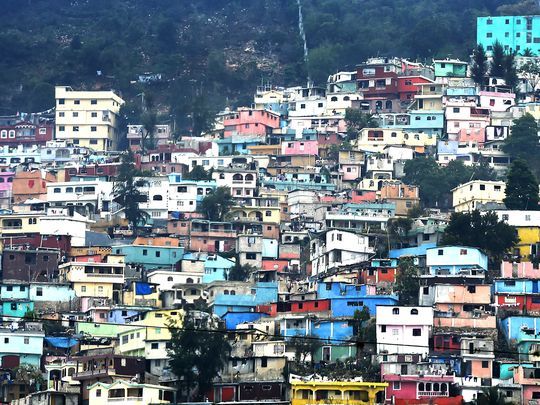Thinker's Notebook
Haiti: The tip of Freedom’s Spear in North America

Allow me to tell you a wonderful story about a most productive and resilient island in the Caribbean. The island was called Hispaniola and the colonization of this island was shared by Spain, who owned two-thirds, and France who owned the remaining third. For those of you not aware, colonization was an imperialist strategy that Europeans instituted for around four hundred years. Basically, it’s when Europeans “discovered” your land, began to settle on it and then enacted laws to control you; to decimate your sovereignty and to simply utilize the idea of manifest destiny as an impetus to usurp all of the resources from your land for profit.
In 1789, North America and the entire Caribbean Sea were engulfed in centuries of colonization. The French controlled their portion of Hispaniola, calling it Saint-Domingue. This little territory was the most prosperous colony in the entire Caribbean. No Caribbean colony churned more profit in 1789 than Saint-Domingue. 60% of the world’s coffee and 40% of the world’s sugar came out of that colony. Slavery, the primary commodity of the time, was solely responsible for the economic boom in Saint-Domingue. French plantation owners imported tens of thousands of Africans for slavery annually. For example, in one year the French delivered 20,000 slaves to Saint-Domingue. Comparatively, in that same year, 38,000 slaves were delivered to every other Caribbean island. A big reason for the influx of slaves into France was the fact that during this time the yellow fever was rampant throughout the island. Slave owners would bring in more and more slaves in order to cover the ones they assumed would die after contracting the illness. It made great business sense, allowing the French slave owners to push out tons and tons of raw material for use in the European world. However, the aggressive stockpiling of slaves led to some very uneasy numbers with regards to population. In Saint-Domingue in 1789, African slaves outnumbered whites by a ratio of 10:1.
It was a combination of the horrible treatment of the slaves by the French, the persistence of free men of color in Saint-Domingue and the ideas of enlightenment which called into question the practice of slavery which put in motion the gears that grinded into revolution on the island. In April of 1791, slaves in Saint-Domingue revolted against slave owners. In just two months, 4,000 whites were murdered by a slave revolt that counted as many as 100,000 members. In a year, slaves owned almost half of Saint-Domingue. The siege would become known as the Haitian Revolution. Jean-Jacque Dessaline named the island Haiti in 1804. Haiti was the first independent nation in Latin America, and the first post-colonial independent Black state in the world. Haiti is the only place that took their independence through a slave revolt.
In 1825, the French Government demanded that Haiti pay an “independence debt”, basically offering reparations to France for their economic losses which stemmed from the loss of the island. France placed warships at the ready, making it hard for Haiti to refuse. The fee was 150 million francs, a figure that would represent trillions of dollars today. The debt crippled Haiti’s economy for a whole century. Finally, in 1947, they were able to pay in full. Ten years later, the ushering in of the Duvalier family and Papa Doc as President led to enormous economic upheaval for Haiti, as the Duvaliers took incurred loans that at one point were responsible for 40% of Haiti’s debt. Between the “independence debt” and the Duvaliers, Haiti was constantly robbed of their resources and kept an unstable country due to corruption. Eventually, Papa Doc’s son, Baby Doc, was kicked out of Haiti and sent into exile. This began a turn for Haiti which now has the country currently coming together after over a century of mismanagement and corruption.
When Baby Doc left Haiti though, he rested comfortably for a time in a lavish apartment at Trump Tower. Our president sold the Haitian dictator a condo on the 54th floor of the building in 1983. Baby Doc owned the place until Ronald Reagan froze his assets in 1987. Still, Baby Doc counted Trump as a friend.
Trump was quoted this week, calling Haiti and countries in Africa “shithole countries”. I guess now that his friend isn’t in charge anymore he could care less about the place. Funny thing is that the more he talks, the less we all could care about him.


